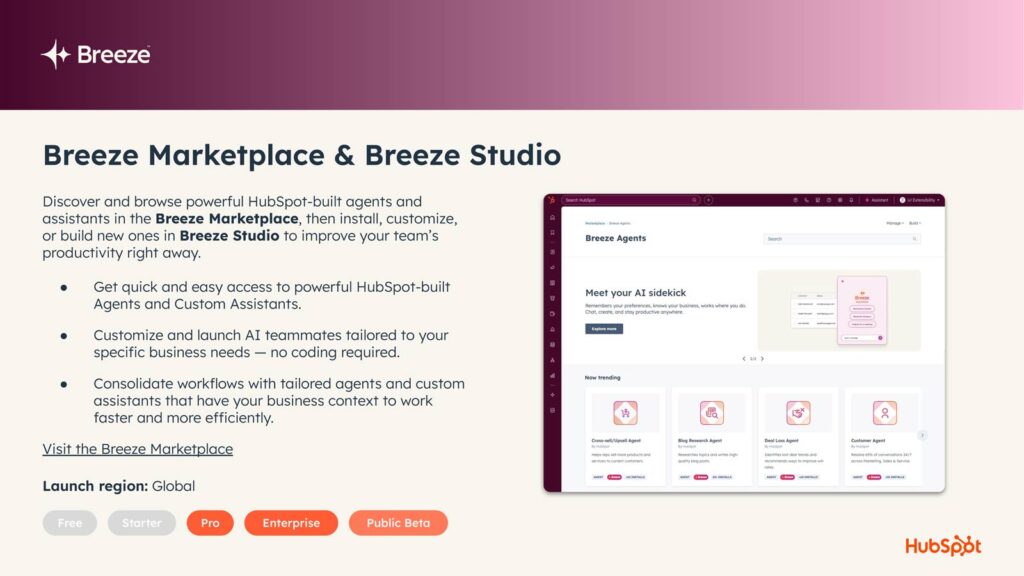The Trust Factor: How B2B Brands Can Build More Profitable Customer Relationships
Trust is, arguably, the single most valuable currency of successful customer relationships. Trust forms the foundation upon which lasting and profitable customer relationships are built. When customers trust a business, they:
-
- Feel more confident in their purchasing decisions
- Are more likely to become repeat customers
- Are more inclined to recommend the business to others
- Are often willing to pay premium prices
- Tend to be more forgiving when mistakes occur
A strong foundation of trust enhances the customer experience by fostering a sense of reliability and satisfaction, which encourages long-term loyalty and positive engagement. Building trust requires consistency, transparency, delivering on promises, and demonstrating genuine care for customer needs. Once established, trust creates a competitive advantage that’s difficult for competitors to replicate.

Tipping the Scale: Why Trust Matters in B2B Relationships
The B2B buying journey is fundamentally different from consumer purchases. With higher price points, longer sales cycles, and multiple stakeholders involved in decisions, B2B relationships are inherently built on a deeper level of commitment. When a business chooses your solution, they’re not just buying a product—they’re often investing in a partnership that will impact their operations for years to come.
Research consistently shows the financial impact of trust. According to Edelman’s Trust Barometer, 81% of B2B decision-makers list trust as a crucial factor when making purchasing decisions. Furthermore, trusted B2B relationships lead to 5x more revenue potential over time compared to transactional relationships.
-
- Accelerated Sales Cycle – Trust accelerates the sales cycle by reducing the perceived risk associated with major investments. When prospects trust your brand, they spend less time in the consideration phase and move more quickly toward commitment. Even more importantly, trusted relationships generate higher retention rates. In an era when acquiring a new customer costs 5-25 times more than retaining an existing one, cultivating trust becomes a vital economic strategy.
- Greater Brand Equity – Trust strengthens immediate customer relationships and builds long-term brand equity by fostering loyalty and positive brand perception. This enduring brand equity enhances competitive advantage, promotes consistent revenue, and increases the business’s overall value in the marketplace.
- Positive Reputation – Furthermore, as consumers become increasingly connected and vocal on social media platforms, a company’s reputation for trustworthiness can significantly impact its ability to attract new customers and retain existing ones. By prioritizing trust in customer relationships, businesses can safeguard their brand image and maintain a positive online presence.
- Enhanced Customer Experience – Trust is an essential ingredient for creating a positive customer experience. When customers feel that they can rely on a company to deliver what was promised, they are more satisfied with their overall experience. This leads to increased customer satisfaction and loyalty, resulting in repeat business
Components of a Trustworthy B2B Brand
Before diving into specific marketing strategies, it’s important to understand what components make up a trustworthy B2B brand:
-
- Consistency across all touchpoints ensures your brand delivers a unified experience, from marketing messages to customer support interactions.
- Transparency in operations, pricing, and limitations builds credibility. Being honest about what your solution can and cannot do prevents disappointment and establishes realistic expectations.
- Reliability in meeting deadlines, honoring commitments, and delivering consistent quality demonstrates that your organization can be counted on.
- Expertise signals to clients that you understand their challenges and can provide valuable solutions based on deep industry knowledge.
- Client-centricity puts customer needs at the forefront, showing that you genuinely care about solving their problems rather than just making a sale.
Barriers to Trust in B2B Relationships
Several factors can undermine trust in B2B relationships. Understanding these barriers is crucial for addressing them proactively:
-
- Industry-specific challenges vary—financial services companies must overcome regulatory concerns, while technology providers may face questions about data security. Each sector has its unique trust hurdles to clear.
- Digital transformation has changed how trust is built. With fewer face-to-face interactions and more digital touchpoints, B2B companies must find new ways to establish human connections.
- Market volatility and economic uncertainty can make buyers more cautious and risk-averse, raising the bar for trust requirements before major purchases.
- Previous negative experiences with similar vendors often create skepticism that new providers must work hard to overcome.
5 Effective Trust-Building Marketing Strategies for B2B Companies
Let’s explore five powerful strategies that B2B companies can implement to build trust through their marketing efforts:

1. Content Marketing with Educational Focus
True thought leadership comes from putting customer education ahead of promotion. By creating deep, research-backed resources that address your audience’s most pressing challenges, you position your brand as a trusted advisor rather than just another vendor.
This approach works because it demonstrates expertise while simultaneously providing genuine value before asking for anything in return. The key is consistency—maintaining a regular publishing cadence with high-quality information that helps your audience solve real problems.
Real-World Example of Effective Content Marketing
Unisource Solutions exemplifies the art of building customer trust through carefully crafted educational content marketing. Their blog serves as a knowledge hub where they share expert insights on workspace optimization, custom furniture, and ergonomics—topics directly relevant to their target audience’s challenges. By consistently publishing well-researched, educational articles rather than promotional content, Unisource Solutions positions itself as a trusted advisor in the workspace solutions industry. Their commitment to delivering valuable information establishes credibility with potential clients long before the sales conversation begins.
To implement this strategy:
-
- Develop cornerstone content pieces that address fundamental industry challenges
- Create content that answers questions your prospects have at each stage of their buyer journey
- Invest in original research that provides new insights for your industry
- Focus on solving problems rather than promoting products
- Ensure all content features high-quality writing and visually engaging images that are directly relevant to the topic, enhancing both readability and audience engagement.

2. Case Studies and Social Proof
In B2B contexts where stakes are high, proof matters more than promises. Detailed case studies that document successful client partnerships with measurable results provide powerful evidence that your solution delivers value.
The most effective case studies go beyond vague testimonials to showcase specific metrics and outcomes. They tell compelling stories of transformation while providing concrete evidence that your solution works in real-world scenarios.
Real-World Example of Effective Use of Case Studies and Social Proof
Giroux Glass masterfully leverages its project portfolio to build customer trust through compelling case studies and social proof. Their extensive portfolio showcases over 45 diverse projects, including high-profile works like SoFi Stadium, Grand Canyon Skywalk, and numerous prestigious commercial buildings, demonstrating their versatility and expertise across different industries. By documenting these impressive achievements with specific metrics and compelling visuals, Giroux Glass establishes credibility that resonates with potential clients seeking a proven partner for complex glazing projects.
To implement this strategy:
-
- Document client success with before-and-after metrics
- Create video testimonials featuring client stakeholders
- Develop industry-specific case studies that address unique sector challenges
- Use professional-quality photos and videos to reinforce credibility

3. Clear Value Communication
Clear and honest value communication is key to building trust and helping prospects understand the benefits of your solution. This means highlighting what your product or service offers and how it addresses customer needs, without overpromising or using cliched jargon.
Real-World Example of Value Communication with Clarity
HubSpot excels at building trust by clearly communicating its value through a vast library of free educational resources, tools, and templates. These offerings deliver immediate value to potential customers, even before a purchase is made. By showcasing expertise in addressing marketing and sales challenges, HubSpot establishes credibility and fosters relationships based on genuine value, steering away from purely transactional sales tactics.
To implement this strategy:
-
- Clearly articulate the benefits and outcomes customers can expect
- Use specific metrics and examples to demonstrate the business case for your solution
- Develop and promote materials such as educational tools, comparison guides, or detailed case studies.

4. Thought Leadership and Expert Positioning
True thought leadership goes beyond basic content marketing to establish your brand as a visionary in your space. This involves executive participation in industry conversations, publishing original research and data reports, and speaking at major industry events.
The goal is to demonstrate that your organization doesn’t just understand today’s challenges—it’s anticipating tomorrow’s opportunities and preparing clients for future success.
Real-World Example of Expert Positioning
Deloitte regularly publishes comprehensive industry trend reports and forecasts that position them as forward-thinking experts. Their Global Technology Leadership Study and other research initiatives showcase their ability to identify emerging trends and provide strategic guidance.
To implement this strategy:
-
- Publish annual industry trend reports and forecasts
- Secure speaking engagements at major industry conferences
- Host and participate in webinars, industry organization events, knowledge-sharing sessions, executive roundtables, and thought leadership events.
- Develop and share proprietary research and insights

5. Client-Centric Community Building
Creating platforms for peer-to-peer learning among clients demonstrates a commitment to their success that extends beyond your product or service. Client communities add value by connecting customers with each other, facilitating knowledge sharing, and creating a sense of belonging.
These communities also provide valuable feedback that helps improve your offerings, creating a virtuous cycle of continuous improvement based on client input.
Real-World Example of Client-Centric Community Building
Adobe has built robust user communities and hosts the annual Adobe Summit that brings together customers to share best practices. Their client advisory boards directly influence product roadmaps, demonstrating their commitment to customer-driven innovation.
To implement this strategy:
-
- Create online platforms for client networking and knowledge sharing
- Host user conferences and client summits
- Develop client advisory boards for product development input
- Facilitate mentorship programs between experienced and new clients
Measuring Trust-Building Efforts
Trust-building isn’t just a feel-good exercise—it’s a strategic investment that should be measured. Key metrics for tracking trust development include:
-
- Net Promoter Score (NPS) and customer satisfaction metrics
- Client retention rates and expansion revenue
- Engagement with thought leadership content
- Referral rates and word-of-mouth business generation
- Reduction in sales cycle length for new prospects
Regularly gathering feedback on trust perceptions through client surveys and interviews provides qualitative insights to complement these quantitative metrics.
The Path Forward: Making Trust Your Competitive Advantage
In today’s business environment, trust stands as the most enduring competitive advantage for B2B brands amid growing skepticism toward organizations. As decision-makers face an overwhelming barrage of marketing hyperbole, aggressive sales approaches, and inflated promises, authentic, trusted relationships have become the critical factor determining which providers ultimately secure and maintain client partnerships.
The strategies outlined here require genuine commitment—there are no shortcuts to building authentic trust. However, the investment pays dividends in the form of longer client relationships, larger deal sizes, and more predictable revenue streams.
For B2B companies looking to differentiate themselves in crowded markets, focusing on trust-building isn’t just good ethics—it’s good business. By implementing these strategies consistently and authentically, you can transform your brand from just another vendor to a trusted partner in your clients’ success.
















